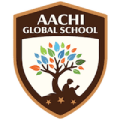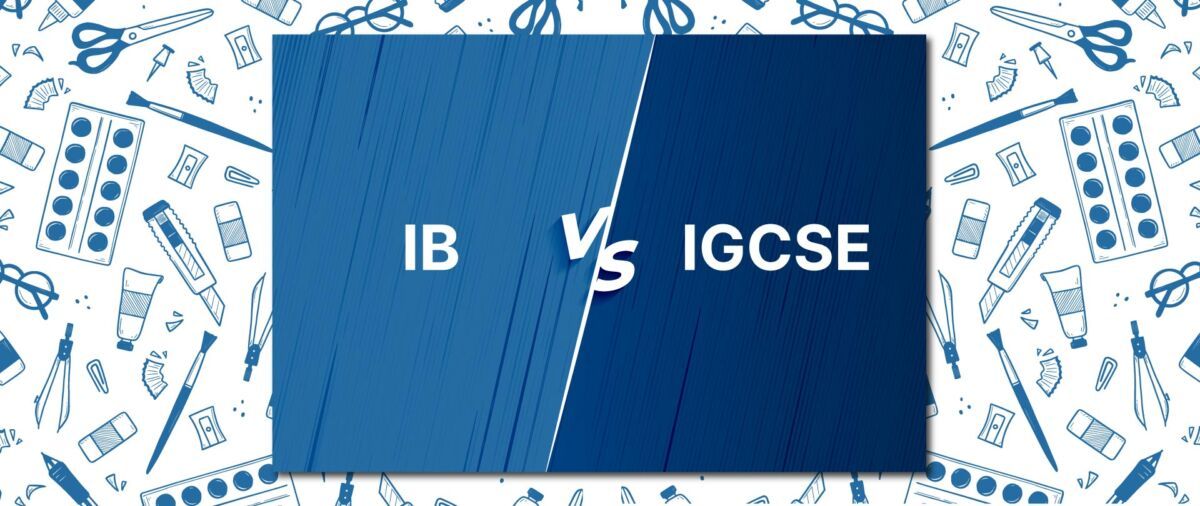Choosing the right educational board is crucial for parents and students to ensure a fruitful future, given the changing global trends of the job market. Especially, when considering international curricula like the IB (International Baccalaureate) and IGCSE (International General Certificate of Secondary Education), it's important to understand the nuances of these educational programs to determine which is ideal for individual study goals.
This blog delves into the key differences between IB and IGCSE examining the IB vs IGCSE curriculum, their respective examination structures, and the broader educational philosophies they represent.
Let us have a comparative analysis of both of IB and IGCSE boards.
Admissions for 2025-26 are now open at AGS Anna Nagar and Ayanambakkam. Enrol today!
IB Full Form
The IB board full form is the International Baccalaureate, is an Internationally recognised educational framework that aims to develop students' intellectual, personal, emotional, and social skills. Founded in 1968, the IB is practised in close to 160 countries around the world and is renowned for its emphasis on a well-rounded education and global perspective.
What is the IB Board?
The IB Board is governed by the International Baccalaureate Organization (IBO), based in Geneva, Switzerland. The IBO oversees the development and implementation of IB educational programs including setting curriculum standards, administering assessments, and ensuring the quality and consistency of IB programs across its global network of schools.
Unlike many other educational boards, the IB board does not rely on formal examinations, offering greater flexibility and unique learning opportunities extending beyond textbooks.
IB Programme
The IB board places a strong emphasis on nurturing students' creativity. It offers various programs for different age groups including Primary, Middle Years and IB Diploma Program at the high school level.
Primary Years Programme (PYP): For students aged 3 to 12 years, the PYP focuses on inquiry-based learning and the development of foundational skills in a broad range of subjects.
Middle Years Programme (MYP): For students aged 11 to 16 years, the MYP emphasises a balanced and interdisciplinary approach to education, fostering critical thinking and global awareness.
Diploma Programme (DP): For students aged 16 to 19 years, the DP is a rigorous two-year curriculum that prepares students for university with a focus on academic excellence and personal development.
It includes core components such as the Theory of Knowledge (TOK), the Extended Essay (EE), and Creativity, Activity, Service (CAS).
Career-related Programme (CP): For students aged 16 to 19, the CP integrates academic study with career-related learning, providing practical and professional skills alongside traditional subjects.
IB Curriculum
The IB curriculum fosters a global perspective and emphasises interdisciplinary learning. It promotes critical thinking, creativity, and intercultural understanding. The curriculum is flexible, not limited by textbooks, and focuses on developing students' ability to think independently and creatively.
IB Syllabus
The IB subjects cover a diverse range of topics tailored to different educational levels:
Primary Years Programme (PYP): Subjects are integrated into thematic units, covering areas such as language, mathematics, science, social studies, arts, and physical education.
Middle Years Programme (MYP): Students study subjects including language and literature, individuals and societies, sciences, mathematics, arts, physical education, and design.
Diploma Programme (DP): Students choose courses from six subject groups: Language and Literature, Language Acquisition, Individuals and Societies, Sciences, Mathematics, and the Arts. The DP also includes core components such as TOK, EE, and CAS.
Career-related Programme (CP): Combines academic courses with career-related studies, including subjects like business, health sciences, and engineering, along with personal and professional development.
IGCSE Board Full Form
The IGCSE full form stands for the International General Certificate of Secondary Education (IGCSE), which is an internationally recognised academic qualification for secondary school students. The IGCSE board has expanded globally through the efforts of Cambridge Assessment International Education (CAIE), which is part of the University of Cambridge.
Initially introduced in 1988, the IGCSE was designed to provide a standardised, internationally recognised qualification that could be adapted to different cultural contexts. Currently, there are about 10,000 IGCSE schools in more than 160 countries. The IGCSE curriculum is similar to the British GCSE but provides a standardised, high-quality education.
What is IGCSE Board?
Administered by Cambridge Assessment International Education, the IGCSE is designed for students aged 14 to 16 years. It is one part of the broader Cambridge curriculum offered by CAIE.
The IGCSE curriculum is flexible and comprehensive, covering core subjects like Mathematics, Science, and English, along with a wide range of electives, including Humanities, Languages and Creative Arts. This flexibility allows students to choose subjects that align with their interests and career aspirations, providing a strong academic foundation.
Assessment in the IGCSE is primarily through formal exams, which evaluate students' knowledge and understanding of each subject. The IGCSE curriculum also serves as a preparatory stage for further education, such as Cambridge O-Levels and A-Levels.
Learn more about the IGCSE Board in this blog on What is IGCSE meaning & curriculum.
IGCSE Curriculum
The IGCSE curriculum is subject-focused, flexible in subject choice, and emphasises exam-based assessment, providing a solid academic foundation for further studies and global career opportunities.
IGCSE Core Programme (14-15 years)
The IGCSE Core Programme is for students in their early teen years, aged 14 to 15 years. Equivalent to the 9th class of the state board in India, this IGCSE programme provides a broad foundation of essential subjects, including Mathematics, English, and Science. Students begin to explore a selection of elective subjects based on their interests.
IGCSE Extended Programme (15-16 years)
Designed for students aged 15 to 16 years old, it is equivalent to the 12th higher studies program of the state board (India). This extended IGCSE program allows students to deepen their knowledge in their chosen subjects, covering both core and extended options. It also offers more advanced study in Humanities, Languages, Creative Arts, and Technology.
Aachi Global School in Anna Nagar offers the best IGCSE curriculum in Chennai, with excellent infrastructure and a strong emphasis on sports and intellectual learning.
IGCSE Syllabus
The IGCSE board offers a broad range of subjects that cater to diverse interests and academic goals. The following are the IGCSE subjects grouped into core and elective categories as follows:
Core Subjects:
- English Language: Emphasis on reading, writing, and communication skills.
- Mathematics: Focuses on numerical and analytical skills.
- Sciences: Includes Biology, Chemistry, and Physics, providing a comprehensive understanding of natural sciences.
Elective Subjects:
- Humanities: Such as History, Geography, and Religious Studies.
- Languages: Including French, Spanish, German, and other modern languages.
- Arts: Options like Art and Design, Music, and Drama.
- Technology and Vocational: Subjects such as Information and Communication Technology (ICT), Design and Technology, and Business Studies.
- Physical Education: Focuses on physical fitness and sports.
Also Read: Difference Between ICSE vs IGCSE.
Key Differences Between IB and IGCSE Boards
Both educational frameworks offer high-quality, internationally recognised qualifications, but the differences between the IB and IGCSE boards vary in their structure, approach, and focus.
The primary difference between IB and IGCSE lies in their educational frameworks and the age ranges they cover. The IGCSE programs, administered by Cambridge, are designed for students aged 14 to 16 years. They offer a flexible and broad curriculum with an emphasis on subject-specific learning, providing a solid academic foundation.
In contrast, the IB board offers programs for a wider age range, from 3 to 19 years. This includes the Primary Years Programme (PYP), the Middle Years Programme (MYP), and the Diploma Programme (DP), as well as the Career-related Programme (CP), which combines academic study with career-related learning.
The difference between IGCSE and IB curriculum plays a major role. The IGCSE curriculum is subject-based, allowing students to select subjects from core and elective areas that cover diverse topics. This structure provides flexibility in choosing subjects based on personal interests and future career goals. Meanwhile, the IB curriculum is holistic and interdisciplinary, aiming to develop well-rounded students with strong critical thinking, research, and intercultural understanding. The IB emphasises inquiry-based learning and personal skills development through its core components like the Theory of Knowledge (TOK), the Extended Essay (EE), and Creativity, Activity, and Service (CAS).
Another key difference between the IB and IGCSE boards is their assessment methods. The IGCSE relies on formal examinations and coursework to evaluate students' knowledge and understanding of specific subjects. In contrast, the IB uses a combination of internal assessments and external exams, focusing on evaluating academic knowledge, critical thinking, research skills, and personal development.
While the IGCSE takes a traditional academic approach with a focus on subject-specific knowledge and examination performance, the IB board emphasises a global perspective and holistic education, aiming to develop students with strong critical thinking and research skills. This highlights the key difference between the IGCSE and IB boards.
Despite these differences, both IB and IGCSE curricula are highly regarded and widely recognised by universities and employers worldwide. Comparing IB vs IGCSE in India, the IGCSE is more prominent, with over 400 schools in top cities, while only 201 schools in India follow the IB board and curriculum.
Ultimately, the choice between IB and IGCSE depends on whether you prefer a flexible, subject-specific focus or a holistic, interdisciplinary educational experience.
Discover the 8 different types of educational boards in India: CBSE, CAIE & more.
Best IGCSE School in Chennai, India - Aachi Global School
Aachi Global School stands out as one of the top IGCSE Schools in Chennai offering the robust Cambridge curriculum. Renowned for its commitment to academic excellence, the school provides a flexible and comprehensive International education for students aged 14 to 16.
With a broad range of core and elective subjects, Aachi Global School provide a well-rounded education that prepares them for future academic and professional pursuits. The school's state-of-the-art facilities, experienced faculty, and emphasis on innovative teaching methods contribute to a dynamic learning environment that fosters both intellectual growth and personal development.
The following Cambridge and IGCSE curriculum programs are offered at Aachi Global School in Anna Nagar:
- Cambridge Early Years Programme (Kindergarten)
- Cambridge Primary Curriculum (Grade Ⅰ to Ⅴ)
- Cambridge Lower Secondary (Grade Ⅵ to Ⅷ)
- Cambridge IGCSE Curriculum (Grade Ⅸ)
Read more blogs related to international boards and curriculum in our blogs section.
2025-26 admissions are now open at AGS Anna Nagar and Ayanambakkam. Enrol today!
Frequently Asked Questions
1. Which is better IB or IGCSE (Cambridge)?
IGCSE offers a flexible, subject-based curriculum for students aged 14 to 16, with a focus on core and elective subjects. IB, particularly through the Diploma Programme (DP) for ages 16 to 19, provides a holistic, interdisciplinary approach.
2. Is IB harder than IGCSE?
The IB curriculum is generally considered more challenging than IGCSE due to its comprehensive, interdisciplinary approach and core components like Theory of Knowledge (TOK), the Extended Essay (EE), and Creativity, Activity, Service (CAS). While IGCSE offers rigorous subject-specific assessments.
3. Are IB and IGCSE are same?
No, IB (International Baccalaureate) and IGCSE (International General Certificate of Secondary Education) are not the same. IGCSE is a subject-based curriculum for students aged 14 to 16, whereas IB includes various programs, such as the Primary, Middle Years, and Diploma Programme providing a more holistic educational experience.
4. Is shifting from IB to IGCSE is possible?
Transitioning from the IB Diploma Programme (DP) to the IGCSE curriculum involves moving from a holistic, interdisciplinary approach to a more subject-specific one. It’s important to consider the academic and personal implications and the possibility before making one.
5. Which is the Best IGCSE School?
When considering the best IGCSE school, Aachi Global School (AGS) stands out as a top choice. Known for its rigorous academic standards, experienced faculty, and diverse extracurricular offerings, AGS is an excellent environment for students for IGCSE.




